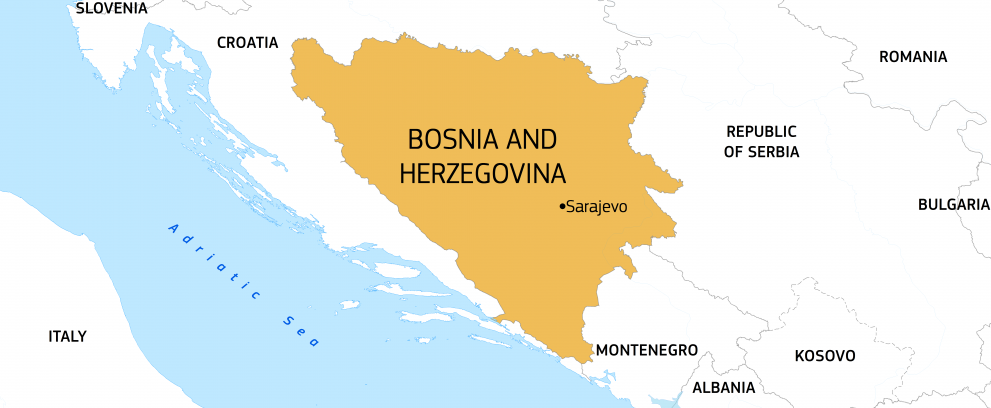Introduction
Since the beginning of 2018, more than 110,000 refugees and migrants arrived in Bosnia and Herzegovina via the Western Balkans route, according to the International Organization for Migration (IOM). Most of whom have left the country already.
Given the persisting humanitarian needs and protection issues, humanitarian assistance remains of the essence to fill in the gaps.
What are the needs?
Accommodation is available in the temporary reception centres. However, there is a lack of structures for people with specific vulnerabilities (including families, women and girls, unaccompanied minors, people with disabilities, older people, and LGBTQI+ people).
Some asylum seekers and migrants choose to sleep in abandoned buildings or makeshift tents. They have limited or no access to food, water, sanitation, electricity, and heating. This leaves them vulnerable to harsh weather and serious safety concerns (e.g., human trafficking, extortion, theft, and sexual harassment).
Due to the hardships of being on the move and facing difficult living conditions, the need for health care (including mental health and psychosocial support) remains high.
Refugee and migrant children face multiple risks, including violence and exploitation from various sources. Both boys and girls are vulnerable to physical and verbal abuse, economic exploitation, and sexual abuse, with unaccompanied children at higher risk.

How are we helping?
Since the beginning of the influx of refugees and migrants in Bosnia and Herzegovina, the EU has been working closely with UN agencies, other humanitarian organisations, and the Bosnian authorities to meet the humanitarian needs of refugees and migrants.
Since 2018, the EU has provided over €21 million in humanitarian aid. The funding is implemented by international humanitarian organisations to cover the most urgent needs of refugees, asylum seekers and migrants.
The EU provides specialised protection services for vulnerable individuals or groups at risk, such as identification and referrals, case management, and support to unaccompanied minors.
EU humanitarian funding also helps provide shelter, food, water and sanitation, health, and supports the country in strengthening its migration management capacities.
Our funding also covers the provision of mental health and psychosocial support. EU humanitarian assistance is provided also to those who are not in reception centres and are sleeping outside.
Since early 2018, the EU has provided a total of nearly €145 million in assistance directly to Bosnia and Herzegovina and through implementing partners.
In September 2022, Bosnia and Herzegovina joined the EU Civil Protection Mechanism as a participating state. Established in 2001, the Mechanism aims to strengthen the cooperation between the EU Member States and participating states on civil protection to improve prevention, preparedness, and response to disasters.
Last updated: 05/09/2023

